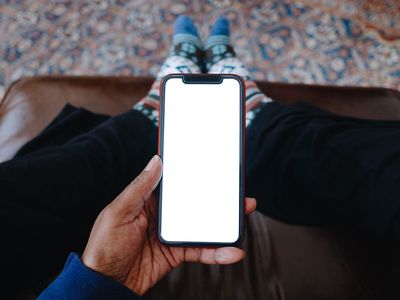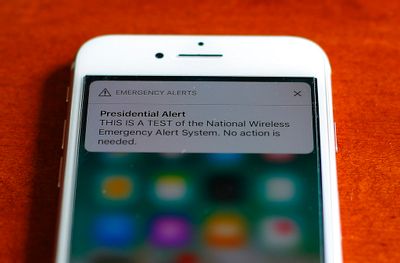Everyone has a smartphone nowadays, whether it's iPhone or Android. We use them for everything from staying in contact with others to changing the oil in our car. But we'll admit it: All the warnings that come with having a smartphone can be pretty worrisome.
Are people stealing your information? Will holding your phone cause finger deformity? From privacy concerns to physical safety, we're gonna cover the stuff that you really don't have to worry about.
We'll go through some of the most common viral smartphone warnings that you can safely ignore. We'll debunk these myths to make sure you feel comfortable using your device.

In late November 2023, a viral warning spread on Facebook regarding the iPhone feature called ‘NameDrop,’ claiming it posed a privacy threat. However, the posts were based on a misunderstanding.
NameDrop, part of iOS 17, allows secure sharing of contact info only when users intentionally initiate it. This means it doesn't just happen without consent. On top of that, you need to be within close proximity with both devices unlocked.
The website Wired and other sources have confirmed that NameDrop is secure, stating there's no need to turn it off. Users, including parents, can disable it in iPhone settings if desired, too. It's totally up to you to use it, but you don't have to!

Warnings about using cell phones at gas stations due to explosion risks have been circulating since 1999. Rumors stemmed from supposed incidents in Indonesia and Australia, but we didn't find any evidence to support these claims.
A claim also popped up in 2002 saying that Shell issued a warning about using your phone at the pump, but later, Shell said they didn't do anything of the sort.
While experts acknowledge a theoretical risk, real-life instances are more than lacking. Stickers cautioning against phone use appear at gas pumps globally, but these precautions are considered preventive without documented hazards.
Reports often incorrectly link cell phones to gas station fires, with investigations revealing other causes like static electricity.

In 2015, NTT DOCOMO, Japan's mobile service provider, warned of a potential "smartphone pinky" deformity, claiming holding phones caused finger damage.
Users then began to share photos of the alleged deformities, but we're here to tell everyone that it's unlikely smartphones cause significant indentations.
Repetitive strain injuries like "BlackBerry thumb" exist, but a Ph.D. researcher notes the smartphone grip resembles holding tools historically. The shared photos more likely depict a benign finger curvature condition called clinodactyly.
Basically, hold your phone however you want without worry.

The U.K. government conducted an emergency alert system test in 2023, involving sending alerts to smartphones for potential threats. Even in America, we've seen these notifications through Morgan Nick alerts or even emergency weather alerts.
Around that time, however, rumors circulated that failure to acknowledge the alert would lead to phone lockdown, but this is mostly false.
Acknowledging the alert by clicking "OK" allows normal phone operation, and no reply is required. You could even turn off those alerts if you wanted to. While we're at it, there is no personal data used during these warnings. It's just a way to get out extremely important information as fast as possible.

It feels like this rumor has been around forever, but it's only been since 2007. The claim here is that answering phone calls from specific area codes can be fatal. Yikes!
The misinformation started in Pakistan in 2007, but it spread like wildfire to other countries.
The claim alleges that specific frequencies cause immediate fatalities, but this is scientifically implausible. If there's one thing you should take away from this it's that cell phone frequencies lack the power to cause harm.
